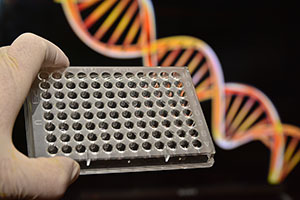Genetic testing analyzes deoxyribonucleic acid (DNA) and looks for alterations or mutations associated with a particular disease or trait. Precision medicine customizes healthcare to individuals’ genetic disposition, environment, and behavior. These new developments are changing healthcare by helping in the early identification of genetic diseases and, thus, better treatment plans.
For nurses, this development offers a chance to make a significant difference in the patient’s outcomes. Therefore, nurses must interpret genetic testing results, educate patients, and work with other disciplines to include genetic information in the care plan. This is especially so as the world embraces genomics, so nurses must be ready to close the gap between technology and patient care.
Genomics: The Process of Genetic Testing and Its Implications
Genomics is the systematic study of a given organism's entire genome (all genes) and how these genes affect health and disease. Genomics is used in healthcare to help determine people’s risks, guide treatment, and tailor patient care to improve outcomes.
Genetic testing is usually initiated by requesting a simple sample, such as blood or saliva. The samples are tested in genetic laboratories to identify genetic mutations or markers associated with a given disease. Healthcare professionals use these outcomes to diagnose or recommend prevention care.
Advancements in technology, including next-generation sequencing (NGS), have enhanced the speed, accuracy, and availability of genetic testing. These innovations are pushing genomics into everyday clinical practice and thus facilitating precision medicine on a larger scale.
Global Genetic Testing Statistics and Trends
Genetic testing is expanding fast, and the market globally was valued at $18.6 billion in 2023 and is expected to grow at a 12.3% annual rate from 2024 to 2032. In the U.S., it is used primarily in oncology and rare disease management, while Europe leads in population genomics. The rise in healthcare investments is driving significant growth in Asia, particularly in prenatal and hereditary testing. However, public awareness varies. A 2020 survey established that only 41 percent of Americans knew that genetic testing could help determine drug efficacy, which points to educational gaps. Other barriers, including cost, access disparities, and ethical concerns, also restrict its application. These challenges must be addressed to fully exploit the potential of genomics.
The Role of Nurses in Assisting Patients With Genetic Testing
Nurses are involved in helping patients understand the importance of genetic testing and the benefits of such tests, for instance, in identifying hereditary cancers (such as the breast cancer susceptibility gene [BRCA] mutations) or chronic diseases such as familial hypercholesterolemia. This enables the patients to make informed decisions concerning their health.
It entails describing the possibilities of the test, the advantages and disadvantages of genetic testing, and the chances of having a false positive or negative report. Nurses also serve as intermediaries, referring patients to genetic counselors or specialists for further direction.
It is crucial to offer emotional support because patients may receive results that are medically sensitive and may have implications for their emotional well-being, such as the likelihood of developing life-altering conditions. Additionally, nurses promote the idea that everyone should have an equal chance of benefiting from precision medicine, regardless of their socioeconomic status.
Through these responsibilities, nurses link genetic science and its clinical application in the patient’s life.
Integrating Genetics Into Personalized Healthcare
Genetic testing helps create personalized treatments by identifying factors specific to patients that affect health outcomes. For instance, pharmacogenomics seeks to tailor medications based on a person’s genes to ensure the right drug and dose are administered to achieve the desired therapeutic effect with minimal or no side effects. This approach has enhanced the management of depressive disorders, cancer, and cardiovascular diseases.
Nurses collaborate with other interdisciplinary team members, such as primary care providers, genetic counselors, and pharmacists, to include genetic data into the care plan. They ensure that the genetic results are explained and translated into practical recommendations, such as changes in lifestyle or screening schedules.
By identifying patient-specific risks, nurses are involved in forming preventive measures, including early intervention in genetically driven diseases. These individualized plans are beneficial to patients as they provide them with information and possibilities to make changes for the better of their health.
Ethics and Practicalities for Nurses
Nurses must respect the privacy and confidentiality of genetic information and follow legal norms, such as the Genetic Information Nondiscrimination Act (GINA), that prohibit employment and insurance discrimination.
The challenges include the need to stay current with the genetic testing guidelines and innovations, as well as the ability to convey complex genetic information that can be understood by patients of diverse cultural backgrounds.
Addressing these issues ensures responsible, equitable genetic testing that respects patient rights and builds trust.
Conclusion
Genetic testing is changing the healthcare sector and offers nurses a way of enhancing patient results through precision medicine. By incorporating genomics into practice, nurses contribute to personalized care, from early detection to customized treatment.
Nurses must update their knowledge to include genomics, which requires them to get more education in this area or take further courses, such as Genomic Nursing Competency courses. Implementing genomics allows nurses to participate actively in this evolving area of healthcare.

